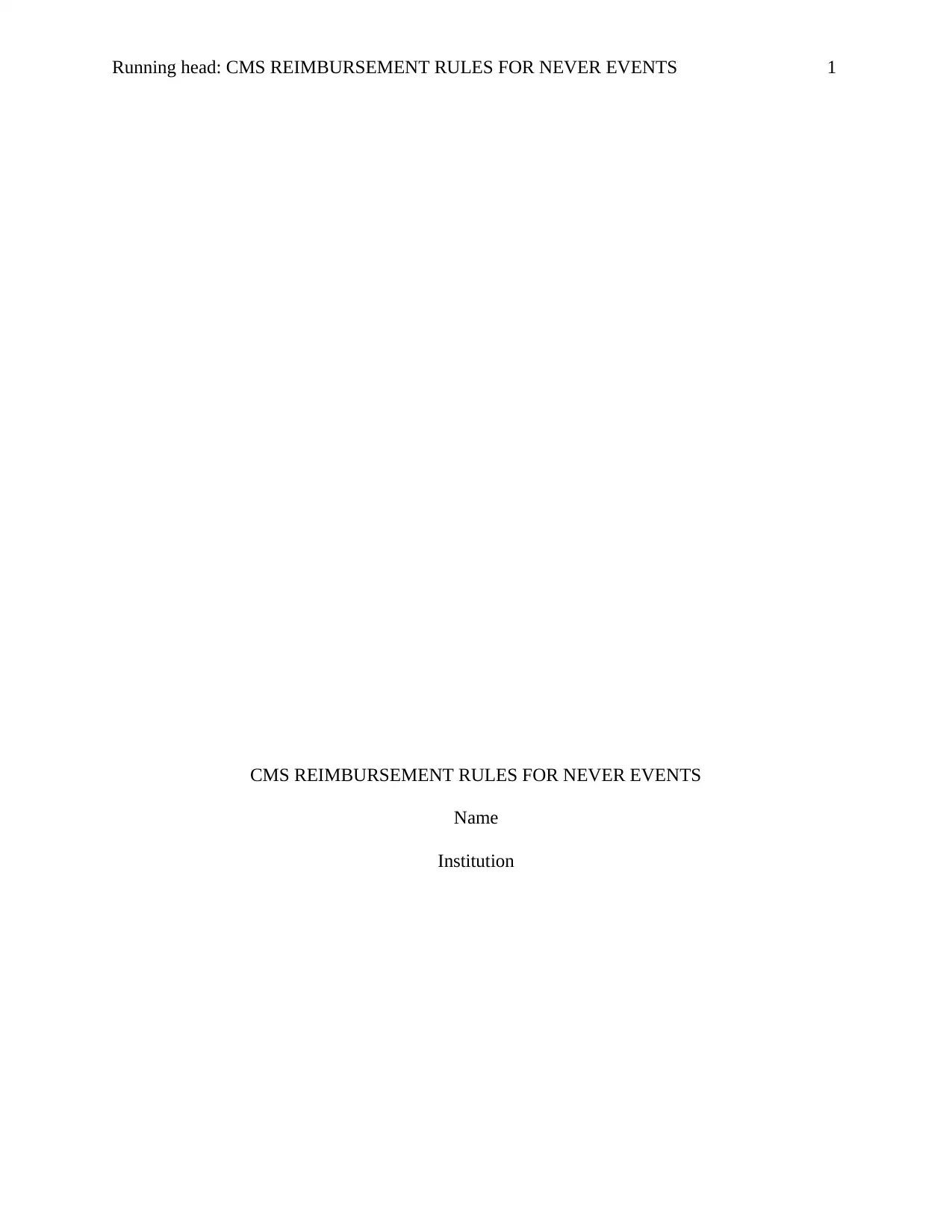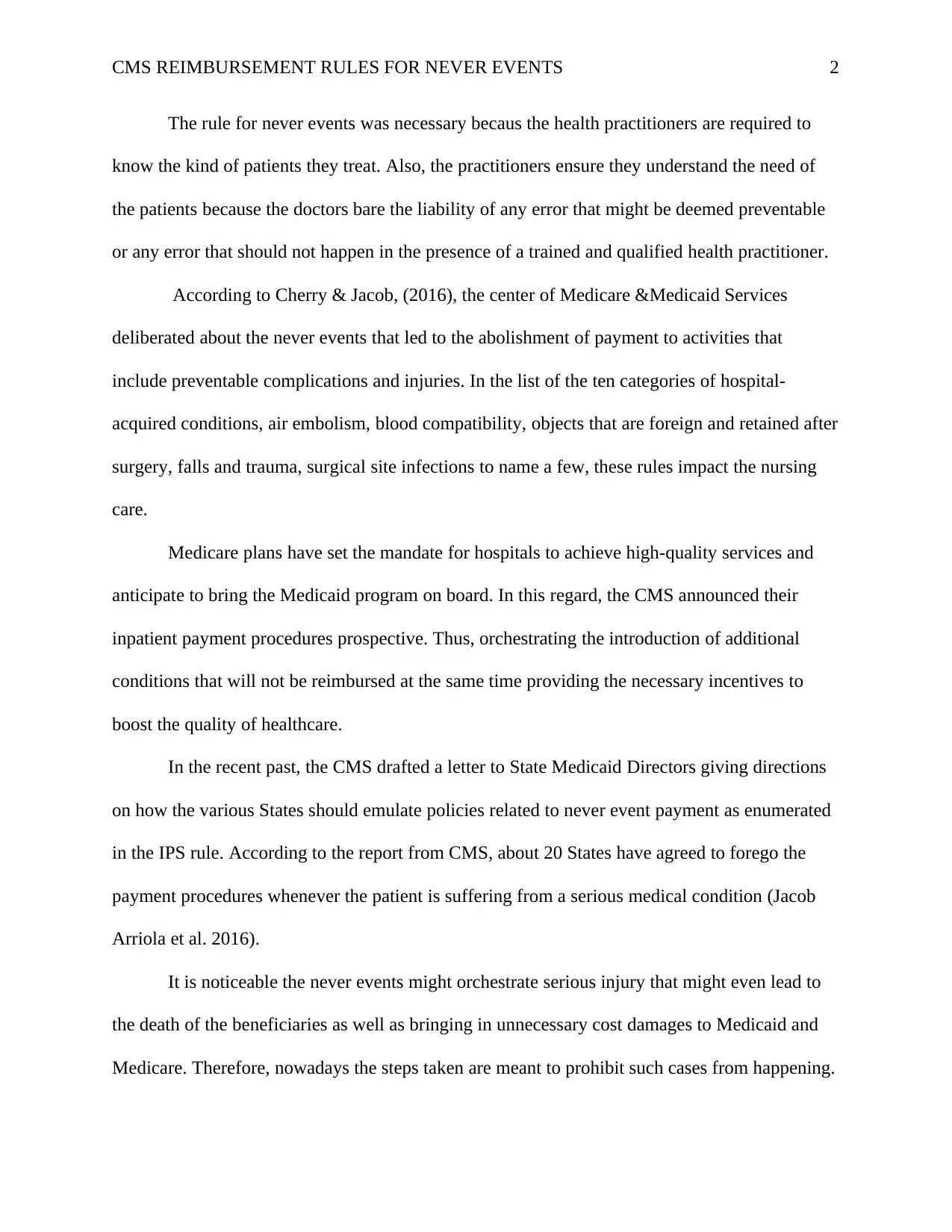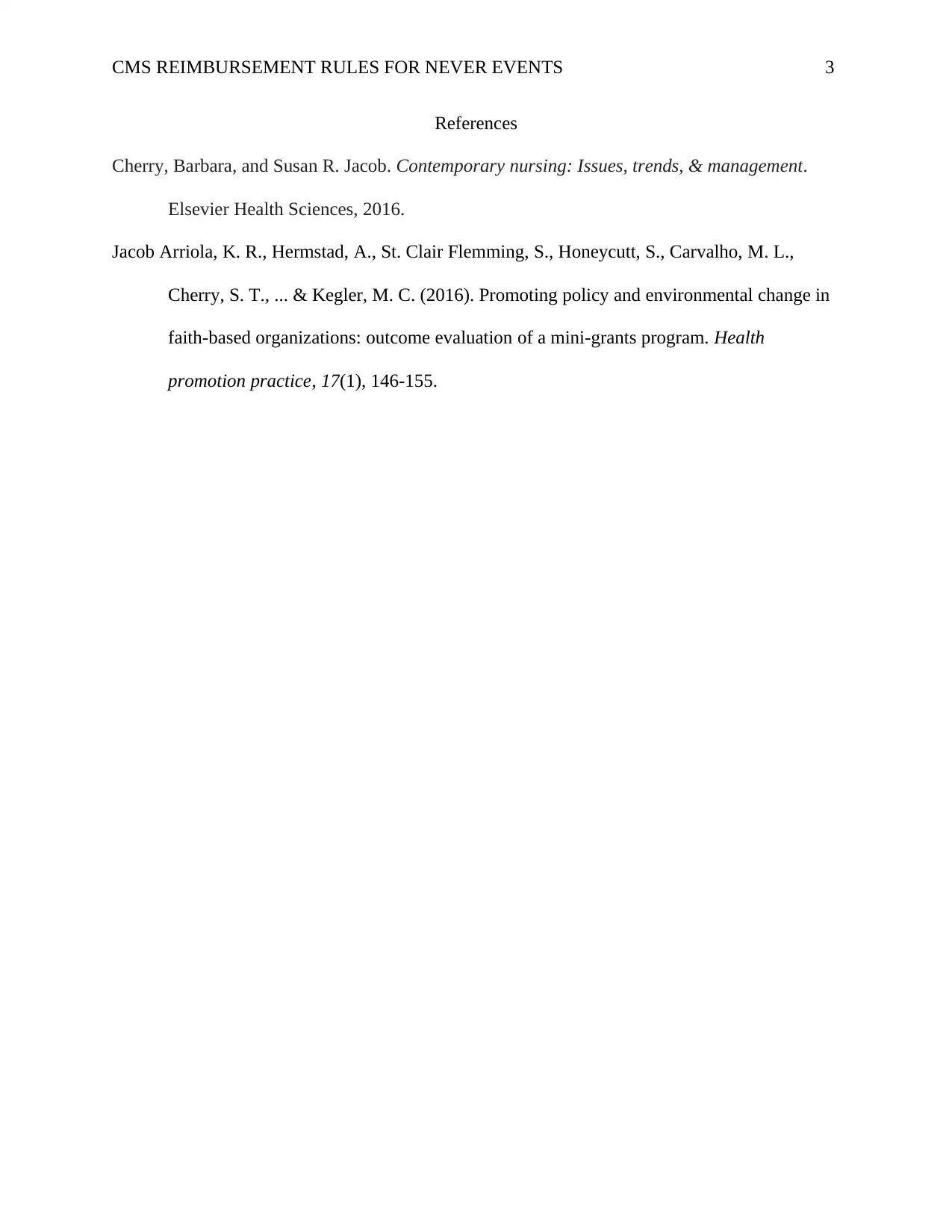CMS Reimbursement Rules for Never Events: Impact on Healthcare
VerifiedAdded on 2023/04/21
|3
|457
|113
Report
AI Summary
This report discusses the implementation and impact of the Centers for Medicare & Medicaid Services (CMS) reimbursement rules for 'never events,' which are preventable medical errors that should not occur in a healthcare setting. CMS has implemented policies to withhold payments for services related to these events, aiming to incentivize hospitals and healthcare providers to improve patient safety and reduce preventable complications. The report highlights specific examples of never events, such as air embolisms, retained foreign objects after surgery, and surgical site infections, and emphasizes the role of nursing care in preventing these occurrences. It also mentions that many states are adopting similar policies to align with CMS guidelines, and that the goal is to minimize patient harm and reduce unnecessary costs associated with these avoidable medical errors. Desklib provides access to similar solved assignments and study resources.
1 out of 3





![[object Object]](/_next/static/media/star-bottom.7253800d.svg)